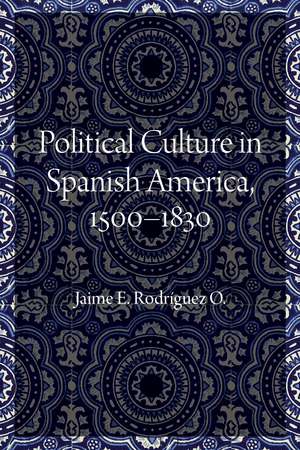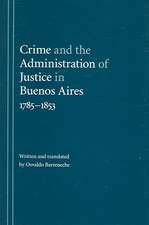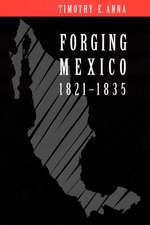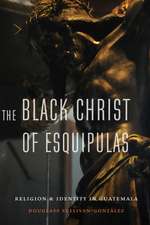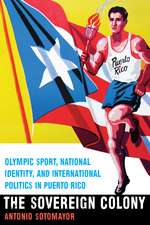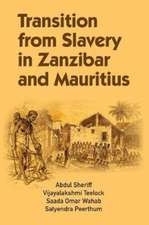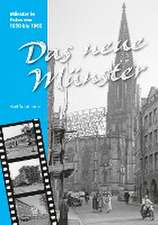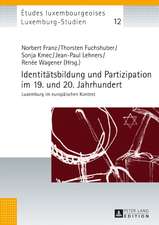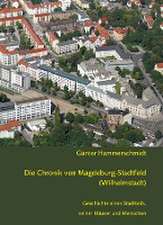Political Culture in Spanish America, 1500–1830
Autor Jaime E. Rodriguez O.en Limba Engleză Hardback – 31 ian 2018
2018 Outstanding Academic Title, selected by Choice
Political Culture in Spanish America, 1500–1830 examines the nature of Spanish American political culture by reevaluating the political theory, institutions, and practices of the Hispanic world. Consisting of eight case studies with a focus on New Spain and Quito, Jaime E. Rodríguez O. demonstrates that the process of independence of Spanish America differs from previous claims.
In 1188 King Alfonso IX convened the Cortes, the first congress in Europe that included the three estates: the clergy, the nobility, and the towns. This heritage, along with events in the sixteenth century, including the rebellion of Castilla and the Protestant Reformation, transformed the nature of Hispanic political thought. Rodríguez O. argues that those developments, rather than the Enlightenment, were the basis of the Hispanic revolution and the Constitution of 1812. Emphasizing continuity rather than the rejection of Hispanic political culture, and including the Atlantic perspective, Political Culture in Spanish America, 1500–1830 demonstrates the nature of the Hispanic revolution and the process of independence. Rodríguez O.’s work will encourage historians of Spanish America to reexamine the political institutions and processes of those nations from a broad perspective to gain a deeper understanding of the Spanish American countries that emerged from the breakup of the composite monarchy.
Political Culture in Spanish America, 1500–1830 examines the nature of Spanish American political culture by reevaluating the political theory, institutions, and practices of the Hispanic world. Consisting of eight case studies with a focus on New Spain and Quito, Jaime E. Rodríguez O. demonstrates that the process of independence of Spanish America differs from previous claims.
In 1188 King Alfonso IX convened the Cortes, the first congress in Europe that included the three estates: the clergy, the nobility, and the towns. This heritage, along with events in the sixteenth century, including the rebellion of Castilla and the Protestant Reformation, transformed the nature of Hispanic political thought. Rodríguez O. argues that those developments, rather than the Enlightenment, were the basis of the Hispanic revolution and the Constitution of 1812. Emphasizing continuity rather than the rejection of Hispanic political culture, and including the Atlantic perspective, Political Culture in Spanish America, 1500–1830 demonstrates the nature of the Hispanic revolution and the process of independence. Rodríguez O.’s work will encourage historians of Spanish America to reexamine the political institutions and processes of those nations from a broad perspective to gain a deeper understanding of the Spanish American countries that emerged from the breakup of the composite monarchy.
Preț: 362.11 lei
Nou
Puncte Express: 543
Preț estimativ în valută:
69.29€ • 72.86$ • 57.25£
69.29€ • 72.86$ • 57.25£
Carte tipărită la comandă
Livrare economică 17 aprilie-01 mai
Preluare comenzi: 021 569.72.76
Specificații
ISBN-13: 9781496200884
ISBN-10: 1496200888
Pagini: 294
Ilustrații: 2 tables, index
Dimensiuni: 152 x 229 x 26 mm
Greutate: 0.59 kg
Editura: Nebraska
Colecția University of Nebraska Press
Locul publicării:United States
ISBN-10: 1496200888
Pagini: 294
Ilustrații: 2 tables, index
Dimensiuni: 152 x 229 x 26 mm
Greutate: 0.59 kg
Editura: Nebraska
Colecția University of Nebraska Press
Locul publicării:United States
Notă biografică
Jaime E. Rodríguez O. is a research professor emeritus of history at the University of California, Irvine. He is the author of several books, including “We Are Now the True Spaniards”: Sovereignty, Revolution, Independence, and the Emergence of the Federal Republic of Mexico, 1808–1824 and The Independence of Spanish America.
Cuprins
List of Tables
Preface
A Note on Usage
Introduction
1. The Nature of Representation in New Spain
2. The Origins of the Quito Revolution of 1809
3. Clerical Culture in the Kingdom of Quito
4. Citizens of the Spanish Nation
5. The Emancipation of America
6. U.S. Independence and Spanish American Independence
7. Caudillos and Historians
8. New Directions and Old Questions
Source Acknowledgments
Notes
Bibliography
Index
Preface
A Note on Usage
Introduction
1. The Nature of Representation in New Spain
2. The Origins of the Quito Revolution of 1809
3. Clerical Culture in the Kingdom of Quito
4. Citizens of the Spanish Nation
5. The Emancipation of America
6. U.S. Independence and Spanish American Independence
7. Caudillos and Historians
8. New Directions and Old Questions
Source Acknowledgments
Notes
Bibliography
Index
Recenzii
"This delightful book forces us to rethink much of what we thought we knew about politics and political culture in Spanish America from conquest to independence."—Sean T. Perrone, Sixteenth Century Journal
"Distinguished historian [Rodríguez O's] documentation of extensive Indian participation in the political process in Ecuador following the crisis of 1808 warrants special mention. Clearly written, thoughtful, and persuasive, this important volume belongs in every college and university library."—M. A. Burkholder, Choice
"Rodríguez demonstrates how different social groups referred to the traditional political culture to defend their interests and improve their social position once the Spanish monarchy evolved from an absolutist regime to a constitutional one."—Abisai Pérez, Southwestern Historical Quarterly
"A leading scholar of Spanish American independence, Jaime E. Rodríguez O. brings to the English-speaking world a collection of articles that he published in Spanish over the last two decades. The volume aims to put the political to the forefront of discussions on the creation of Spanish American nations, a long-term commitment of Rodríguez O.'s and a complex matter worth discussion in the case of such an influential scholar."—Mónica Ricketts, Hispanic American Historical Review
“Jaime Rodríguez O. is a great historian of the Iberian Empires, and once again he shows his command of the subject in his latest book, Political Culture in Spanish America, 1500–1830. It is an insightful and in-depth examination of independence within an Atlantic framework. This analysis is both beautifully written and exciting to read.”—Christoph Rosenmüller, research fellow at the Max Planck Institute for European Legal History and professor of Latin American history at Middle Tennessee State University
